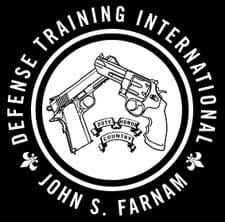Post: We find the following astonishing statement in Shu”t Chasam Sofer, volume 6, siman 59.
In plain text:
ומ”ש שהרב אמר משם אמ”ו זצ”ל לא שמעתי מפיו ואולי התיר הרב לעצמו ע”ד שאמרו חז”ל רצית להחנק תתלה באילן גדול ואל תאשימהו עבור זה הנה נמצא בשכונתך ס’ מטפחת ספרים למהריעב”ץ תמצא שם כי דבר גדול דבר הנביא ז”ל בענין זה הלא ישתוממו רואיו וד”ל.
“And that which you wrote, that the rav said in the name Adoni, Mori v’Rabbi {=my teacher} zatzal, I did not hear this from his mouth. And perhaps this rav permitted for himself based on that which Chazal said {Pesachim 112a} ‘If you wish to be strangled, be hanged on a large tree’. And don’t condemn him for this. Behold, the sefer Mitpachat Sefarim is found in your neighborhood, from Moreinu HaRav Yaakov ben Tzvi {=the Yaavetz, Rav Yaakov Emden}, and you will find there that the prophet za”l said a great thing in this matter, which will cause astonishment in those who see it, and it is sufficient to the wise [ודי לחכימא / ודי לחכימא ברמיזא].”
To make this a bit more explicit, Rav Yaakov Emden’s sefer, Mitpachat Sefarim, is about how the Zohar is a forgery, written by an author much later than Rabbi Shimon bar Yochai. (If I recall the specifics, that the vast majority of Zohar are later, and that the Raya Mehamna and Tikkunim of the Zohar is an absolute forgery.) The Chasam Sofer is telling his correspondent that just as this rav falsely attributed the position he wanted to the rebbe of the Chasam Sofer,so too a kabbalist (Rav Moshe de Leon, or perhaps many kabbalists and copyist adding their thoughts?), who wanted his ideas to gain greater weight falsely attributed his ideas to Rabbi Shimon bar Yochai, or else to the various Tannaim and Amoraim who appear in the Zohar. And at the very least, he is endorsing the conclusions of Rav Yaakov Emden, as he states: דבר גדול דבר הנביא ז”ל בענין זה.
(To see Shadal’s summary of some of Rav Yaakov Emden’s Mitpachat sefarim, see here and then here, where he speaks of additions, forgery, and Rav Yaakov Emden telling over the famous story from sefer haYuchsin of Rav Moshe de Leon forging the Zohar and granting credence to the story.)
Note also that the Chatam Sofer takes care not to say this explicitly, but rather hints at it, for those who would look up the relevant sefer and read it. And he ends וד”ל, either ודי למבין, or ודי לחכימא. That is, he won’t say more, but the hints he has given is sufficient. Presumably this is because he is trying to avoid backlash from those who would strike out at him for taking such a controversial position. And he succeeded, for the most part. It is one passing cryptic paragraph in the midst of a teshuva, among many other teshuvot. Who would really notice this?
This is a rather straightforward reading of this paragraph in this teshuva, I think.
The Chasam Sofer’s student, Rabbi Eliezer Lipman Naizatts, writes in sefer Mei Menuchot, page 43a:
“אילו היה יכולת ביד אדם להעמיד מדרשי רשב”י על טהרתן, לברר מהם מה שנתחבר אליהם מחכמי הדורות שאחריו, לא יהיה כולו רק ספר קטן כמות מאוד, מחזיק דפים מעוטים”
“And of the haggadot of Chazal in this {meaning demons}, behold it is already known their approach za”l in holiness, to hide their inner meaning within allegory, flowery phrases and riddles in their haggadot, za’l. And the hidden midrashim of Rabbi Shimon ben Yochai in which come many discussions of demons and spirits, behold it is known that these midrashim are hidden, with their extremely deep inner meaning concealed and encrypted.
And also, it is known to all who knows, that many [and perhaps the vast majority] of the statements in those midrashim came from the mouths of the generations after him, and clung in there. And this is as I explicitly heard from the holy mouth of Adoni, Mori veRabbi, the Geon Yisrael, Kedosh Yisrael Mechubad, Moreinu HaRav Rabbi Moshe Sofer, zecher tzadik vekadosh livracha, av bet din verosh mesivta of the holy community of Pressburg, that he said before many of his students: if there were the human ability to establish the midrashim of Rabbi Shimon bar Yochai in their pristine state, to pick them out from that which was attached to them from subsequent generations, its entirety would only be an extremely small sefer, taking up few pages.”
Still, for something as earth-shattering as this, it is helpful to have others citing this material, and saying similar things. And so, I will seek company in the assertion that the Chasam Sofer held that the Zohar (or most of it) was not from Rashbi.
Here is Rabbi Berel Wein in a speech about the authenticity of the Zohar, speaks about the Chasam Sofer as someone who disbelieved that most of the Zohar was from Rabbi Shimon bar Yochai. It starts at 2:58, with Rav Yaakov Emden; Chida’s defense at 5:40. At 6:07, he speaks about Chasam Sofer and quotes this teshuva, in favor of Rav Yaakov Emden (though he leaves out the introductory remarks). And then he skips to the other statement, from Mei Menuchot.
And here is Rabbi Natan Slifkin, in his article on Shiluach HaKen, (available for purchase via donation, and download here) who writes:
Footnote 55, to document this statement I underlined in red, refers us to this very teshuva of the Chasam Sofer: Responsa Chatam Sofer, 6:59, s.v. U’ma sheKatav sheHaRav. Indeed, that is how I first encountered this statement.
Both Rabbi Wein and Rabbi Slifkin do not discuss deliberate forgery. Rather, it is just that most of the Zohar is not from Rashbi. This could be from simple latter accidental accruing, perhaps.
While this a pretty shocking statement in and of itself, I would note that I would say further than this somewhat tamer statement, and think the text in the teshuva implies deliberate forgery and not just later authorship. After all, the context in the teshuva is someone falsely attributing to the Chasam Sofer’s rebbe, and the Chasam Sofer’s partial excuse of this on the basis of a statement of Chazal. And his citation of Rav Yaakov Emden comes by way of example of this deliberately false attribution. And Rav Yaakov Emden in fact makes such a statement about deliberate forgery and false attribution.
I would also note that believing the Zohar to be a forgery does not mean one must disbelieve all of kabbalah. Rav Yaakov Emden, who authored Mitpachat Sfarim, was a great kabbalist, even after his discovery. Indeed, it was what empowered his discovery. Similarly, even if the Chasam Sofer thinks that a good portion of the Zohar is not from Rashbi, and is indeed a forgery, that does not mean rejection of the truth and/or value of kabbalah in general. The specifics of how this can work out will be left for another post, b’Ezras Hashem.





